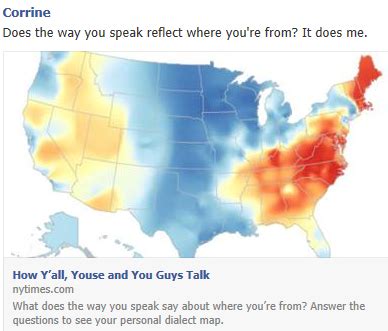Introduction
The way we speak varies greatly across different regions of the world. Within the United States alone, there are countless dialects and accents that reflect the unique cultural and linguistic heritage of each area. Some of these regionalisms have become so ingrained in local speech that they have become synonymous with a particular place or group of people. In this article, we will explore the fascinating regional variations of the words “you” and “guys,” examining how they are used in different parts of the country and the cultural nuances they convey.

The Evolution of Regional Language
Language is a living, breathing thing that is constantly evolving. As societies change and interact, so too do the languages they speak. New words are created, old words fall out of use, and the meanings of words can shift over time. Regional dialects are often the result of these linguistic changes, as different groups of people adopt and adapt the language to their own unique needs and experiences.
In the case of the words “you” and “guys,” their regional variations can be traced back to the early days of American settlement. As colonists from different parts of the British Isles came to the New World, they brought with them their own distinct dialects. Over time, these dialects blended and evolved, giving rise to the diverse regionalisms we hear today.
Regional Variations of “You”
The most common regional variation of the word “you” is the use of “y’all” in the southern United States. Y’all is a contraction of the words “you” and “all,” and it is used as a plural pronoun to refer to a group of people. Y’all is particularly prevalent in the southeastern states, but it can also be heard in other parts of the country, such as Texas and Oklahoma.
In the northeastern United States, the pronoun “youse” is sometimes used instead of “you.” Youse is a contraction of the words “you” and “us,” and it is typically used in informal settings. Youse is most commonly used in the New York City area, but it can also be heard in other parts of the Northeast.
Regional Variations of “Guys”
The word “guys” is another common regionalism that is used in different ways across the United States. In some parts of the country, guys is used as a gender-neutral term to refer to a group of people, regardless of their gender. In other parts of the country, guys is used specifically to refer to a group of men.
In California and other western states, the word “you guys” is often used as a plural pronoun to refer to a group of people. You guys is similar to y’all in that it is used as a plural pronoun, but it is typically used in more informal settings.
Cultural Nuances of Regional Language
The regional variations of “you” and “guys” not only reflect linguistic differences but also cultural differences. The use of y’all, youse, or guys can convey a sense of familiarity and camaraderie, or it can be used to indicate a particular social group or identity.
For example, the use of y’all in the South is often seen as a sign of Southern hospitality and friendliness. Y’all is a way of including everyone in a conversation and making them feel welcome. In contrast, the use of youse in the Northeast can sometimes be seen as a sign of disrespect or condescension. Youse is often used in informal settings, and it can be perceived as being too familiar or presumptuous in certain contexts.
Conclusion
The regional variations of “you” and “guys” are a fascinating example of how language can evolve and adapt to different cultures and contexts. These regionalisms not only reflect the linguistic diversity of the United States but also the cultural nuances and social identities of the people who use them. Whether you say y’all, youse, or guys, the way you speak is a part of your unique identity and heritage.
